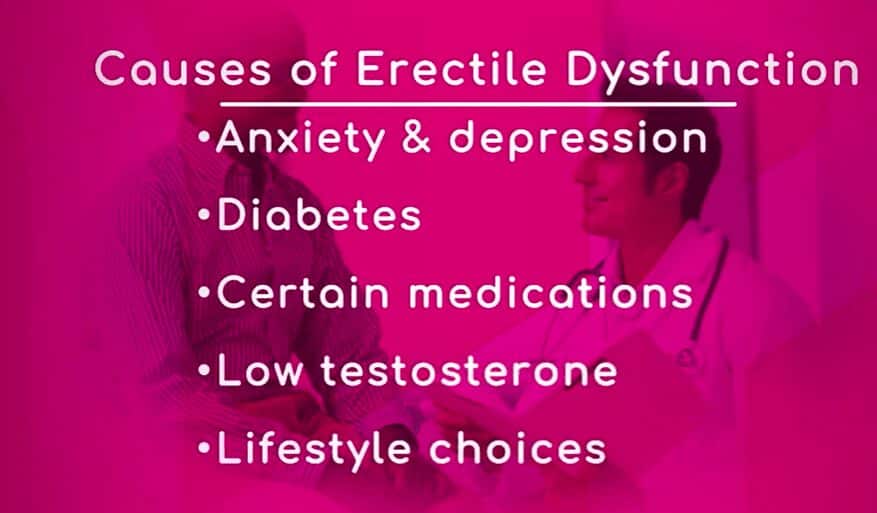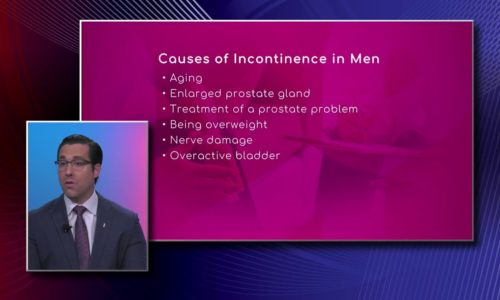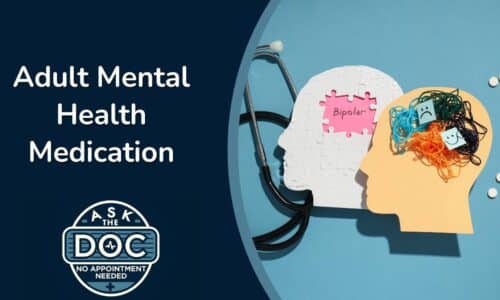How Sexual Dysfunction Correlates With Undiagnosed Issues |

In an episode of Health Insiders on the Health Channel, Dr. Daniel Martinez, a Urologist for Baptist Health South Florida, talks about how untreated silent killers such as high blood pressure and high cholesterol can affect more than just your heart. Dr. Martinez remarks that, a lot of times he discovers that patients who come in for sexual dysfunction also have undiagnosed underlying issues.
Male sexual health is multifactorial, a lot of things go into allowing a man to have a good sex life. Being negligent about any aspect of your health affects your whole body, including your sexual well-being. Dr. Martinez says that many of his patients who come to him for sexual dysfunction have not gone to see their primary care physician, their gastroenterologist, or their dentist for long periods of time. “But, because sex is so important, I tend to be on the front line,” Dr. Martinez explains, “They come and see me for that, and I say well have you gotten your blood pressure checked? Have you checked your blood sugar? Have you checked anything at all? Have you gone to a doctor in the last 10, 20, 30, years? And it is amazing how many guys will say ‘no I haven’t.’” Dr. Martinez laments that because of this, a lot of times he needs to start at ground zero with patients, which is much more time consuming than if patients took greater care monitoring their health.
Erectile dysfunction is a condition where a man is unable to either maintain or achieve an erection that is rigid enough and sustainable enough for the entire session of intercourse. This is something that every man, at some point in their life, will experience in some way, shape, or form. The common cause of erectile dysfunction is, again, multifactorial. There is no single common cause. You can have anything from high blood pressure, diabetes, cardiac disease, atherosclerosis, medication side effects, surgeries, and, of course, it could be psychogenic.
Treatment for erectile dysfunction can be tricky. Dr. Martinez says, “Of course if a man comes in and let’s say he’s having trouble in the bedroom, secondary to their high blood pressure, he controls the high blood pressure and all of a sudden, yes, he may see an improvement in his erections.” Unfortunately, sometimes you get to a point where dysfunction is irreversible. Therefore, it is important for men to get their physical examination every year. Erectile dysfunction is important to bring up with your doctor because it could reveal other health issues.
Additionally, a second doctor who appears as a guest in the program, Dr. Landon Trost, a urologist at the Mayo Clinic, explains that the penis is a barometer for a man’s health. If the barometer pressure goes down, that indicates that storms are coming. When the penis declines, that can mean that a decline in your health could be around the corner. These problems can happen in organs that are made up of tissues like that of the penis. The penis has endothelial cells, which are a kind of blood vessel, and it has smooth muscle. These same types of cells are found in other organs in your body such as your heart, your brain, and your kidneys. Dr. Trost says erectile dysfunction can precede issues like heart disease, stroke, and diabetes so it can give you an early indicator and suggests that in some cases it’s worthwhile to seek further evaluation. Although it may be the last thing a man might want to discuss, ED is one of the first things they should bring up with their doctor. It is very common, and it could be a signal there is a storm approaching.
Besides heart disease, another cause of erectile dysfunction could be anxiety or depression. When somebody gets anxious, they produce hormones that will help them survive a stressful situation, these are our fight-or-flight hormones. Dr. Martinez elaborates, “Of course we’re not prepared to have sexual intercourse. Let’s say, if somebody comes up to you and puts a gun to your head or tries to rob you. That’s not an ideal time.” So, anxiety and depression, this performance anxiety, of course, is one of the major factors.
Diabetes is also linked to earlier development of erectile dysfunction. “You’re talking about at least 10 years earlier, you’re going to be diagnosed with erectile dysfunction,” Dr. Martinez warns. You are two to three times more at risk of developing erectile dysfunction if you have diabetes. Diabetes mellitus can cause fibrosis. This fibrosis can cause scarring in the actual erectile tissue of a man’s penis. It could destroy their blood vessels, the smooth muscle, and the corpora, which is the part of the penis that fills up with blood. “Diabetes is something you should control because if you don’t, you’re going to end up with many other health problems,” says Dr. Martinez.
Certain medications can also cause erectile dysfunction, but that does not mean that the patient can stop taking these medications, because usually what the medication is treating can also cause erectile dysfunction. Many medications will have lowered testosterone as a side effect which, of course, causes erectile dysfunction. Lifestyle choices can also contribute to erectile dysfunction, things like, smoking, drug use, and alcohol overconsumption.
Your blood pressure numbers can also affect whether you have erectile dysfunction or not. Similarly, to diabetes, high blood pressure can cause vascular disease and it can cause issues with the arteries, veins, and the smaller arteries, arterials, and venules of your penis. So, if you have high blood pressure, it can damage the infrastructure within the penis that allows it to become erect.
Medications used to treat high blood pressure such as diuretics or beta blockers can cause erectile dysfunction as a side effect. This does not mean that the patient should stop it if they are starting to experience erectile dysfunction. Dr. Martinez explains, “Worse than the erectile dysfunction that they’re experiencing as a side effect from the medication, high blood pressure can cause heart attacks, strokes, and other things. Which then of course impedes having sexual intercourse.”
Watch the full segment discussing the correlation between underlying illness and erectile dysfunction with Dr. Daniel Martinez, here: https://youtu.be/d8TrdxdGHGk








